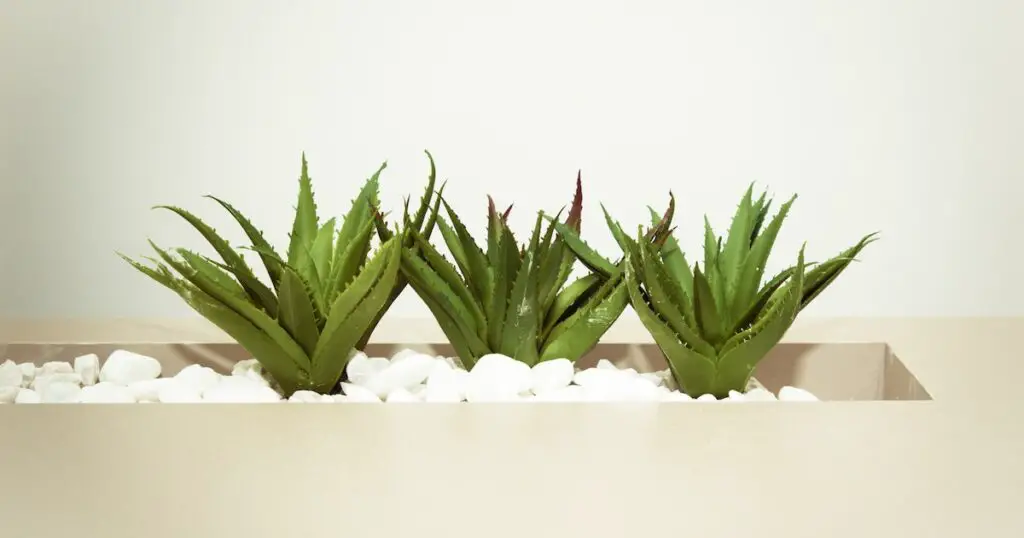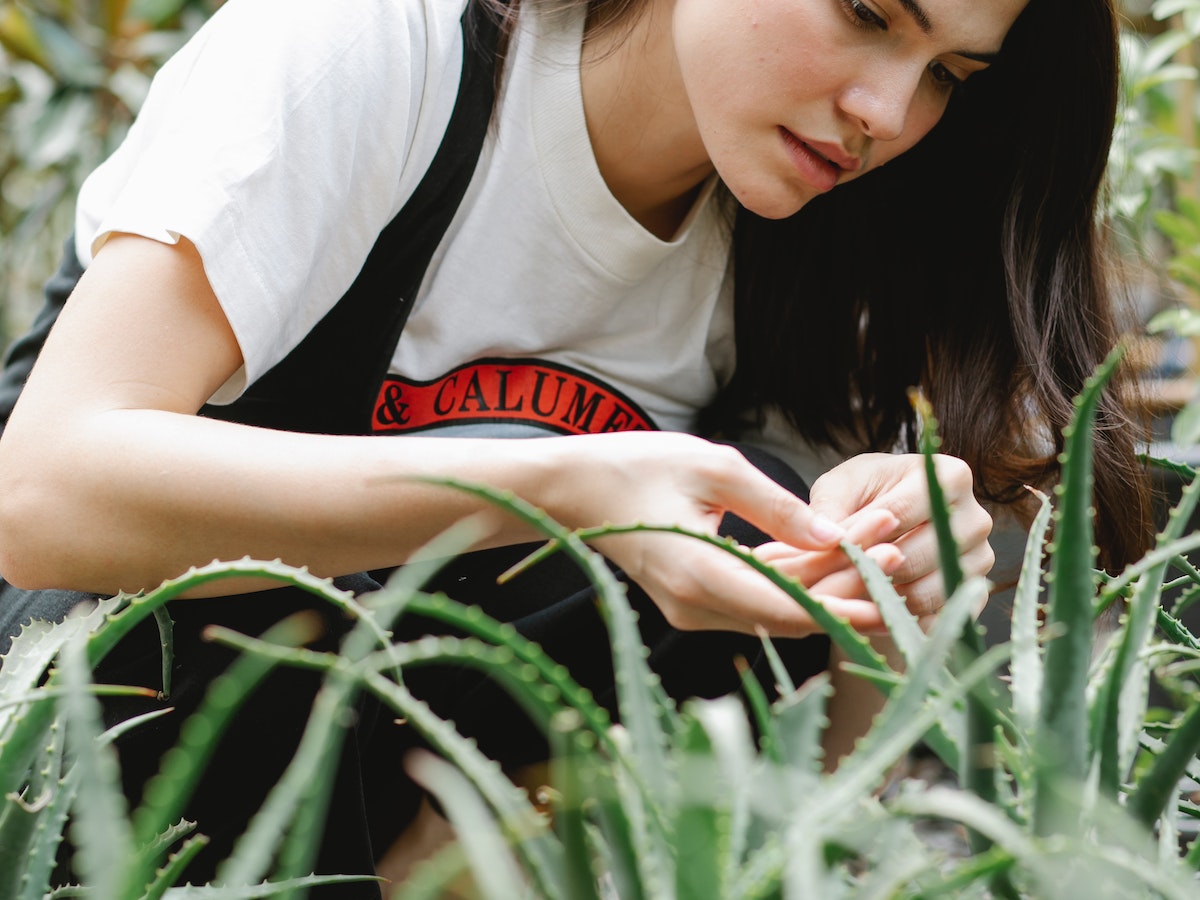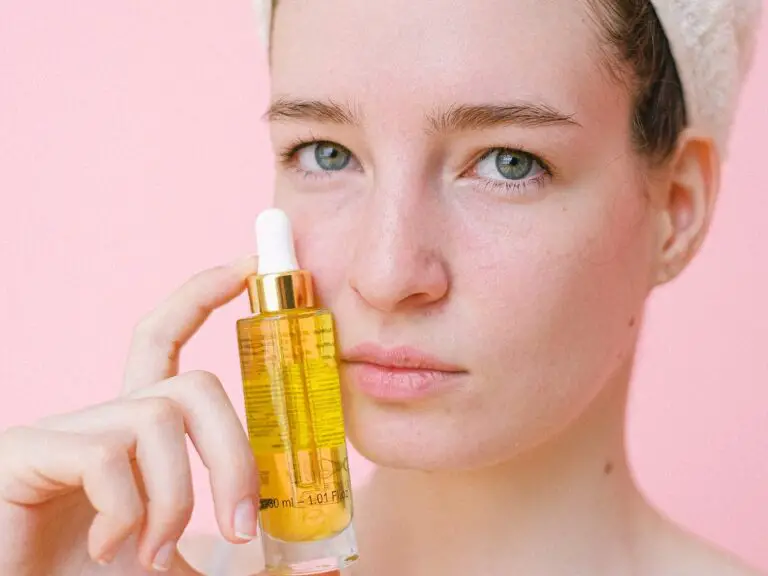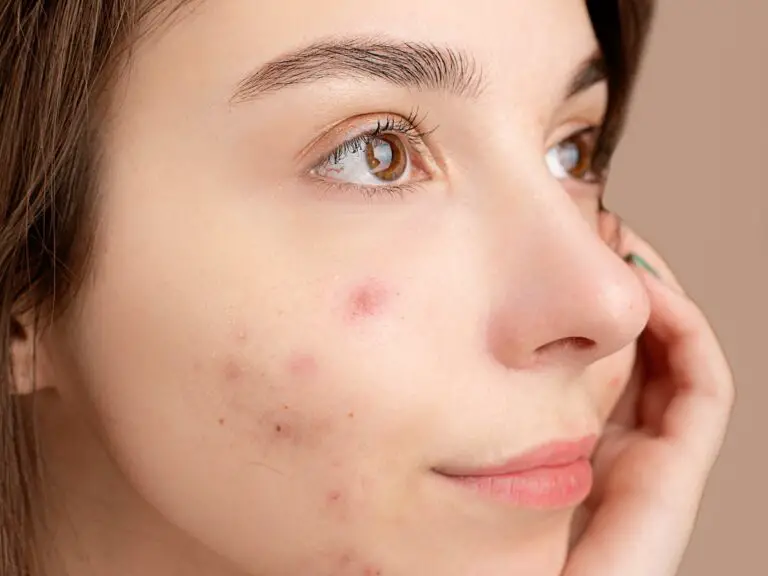Does Aloe Vera Worsens Your Acne Breakout?
Do you have pimples and want to find a natural way to make your skin feel better? Aloe vera has been known for a long time as a “miracle plant” that can help with many health problems, including skin problems.
But knowing what could go wrong with aloe vera juice before you rush to put it on acne-prone skin is important. Despite what most people think, aloe vera might not be the miracle cure you’ve been looking for. Aloe vera might make your acne worse. In this piece, we’ll discuss why aloe vera may worsen your acne and what you can do instead to get clear, healthy skin.
So, before you make a quick choice, let’s find out the truth about aloe vera and how it affects the skin that gets acne.
Table of Contents
Understanding Acne and its Causes
Acne is a skin disorder that is extremely widespread and affects millions of people all over the world. It takes place when hair follicles become clogged with oil and dead skin cells, resulting in acne, including whiteheads, blackheads, and pimples.
Acne is a skin condition that can be caused by a number of different things, the most important of which are hormone imbalances, excessive oil production, and heredity. The actual reason for acne is still not completely understood.
Common Misconceptions about Using Aloe Vera for Acne
Aloe vera has become famous as a natural treatment for acne and other skin problems. The gel-like substance it contains is believed to have anti-inflammatory and antimicrobial properties that can help reduce redness and edema caused by acne. But when using aloe vera to treat acne, it’s important to know what’s true and what’s not.
People often think that aloe vera can get rid of acne fast. It might help temporarily and feel good on the face, but it’s not a cure-all. Acne is a complicated problem that needs a wide range of treatments, including changes to your lifestyle, a regular skincare routine, and in some cases, medical help.

How Can Aloe Vera Worsen Acne?
Contrary to what many people think, aloe vera can make acne worse in some people. One reason is that aloe vera juice can be comedogenic, which can cause pores to get clogged and make acne worse. This is especially true if your skin is oily or prone to pimples because the extra oil from the aloe vera gel can cause new pimples to form.
Some people may also be allergic to aloe vera, which can cause skin irritation and make acne problems worse. Before putting aloe vera on your face, you should do a patch test or talk to a doctor to determine if it’s good for your skin type.
Research Studies on Aloe Vera’s effects on Acne
Aloe vera’s effects on acne have been studied in many different ways. Some studies show that aloe vera may have anti-inflammatory and antibacterial properties that can help acne-prone skin. Still, the results aren’t clear and vary depending on how much aloe vera was used and the person’s skin type.
A study released in the Journal of Dermatological Treatment found that acne lesions got better when aloe vera gel was used with tretinoin cream. But more study is needed to determine the best concentration and form of aloe vera for treating acne.
Alternatives to Aloe Vera for Acne Treatment
If you don’t want to use aloe vera to treat your acne or have had bad experiences with it, other treatments may work better for your skin. An excellent option is salicylic acid, a beta-hydroxy acid that helps exfoliate the face, clear the pores, and reduce inflammation. Benzoyl peroxide is another famous ingredient that kills the bacteria that cause acne and helps clear up breakouts.
Tea tree oil, witch hazel, and green tea extract are all-natural treatments promising in lowering acne. But it’s important to remember that results may vary from person to person, and it’s always best to talk to a dermatologist to find the best treatment for your skin problem.

How to Use Aloe Vera safely on Acne-Prone Skin?
Even though aloe vera could make your acne worse, if you still want to try it, there are some things you can do to make it less likely that it will. Here are some tips on how to use aloe vera on acne-prone skin safely:
- Choose a good aloe vera gel or extract that doesn’t have any extra ingredients or chemicals. Look for items that say “non-comedogenic” or “made for acne-prone skin” on the label.
- Test a small area of your skin before putting aloe vera on your face. Apply a small amount of the gel to a small area of your skin and wait at least 24 hours to see if it causes irritation or an allergic response.
- Add aloe vera to your skincare routine slowly if you decide to use it. Start by putting a small amount on your skin once a day and seeing how it behaves. If your skin worsens, you should stop using the product immediately.
- After putting aloe vera gel, you should always use a moisturizer that is made for skin that gets acne. This will help keep your skin moist and safe without adding too much oil.
Consult a Dermatologist
When it comes to treating acne, it is essential to speak with a dermatologist, who can evaluate the health of your skin and advise you on the treatment method that will be the most effective. Before making a recommendation about treatment, a dermatologist will consider several criteria, including the type of your skin, the severity of your acne, and any underlying medical concerns.
In addition, a dermatologist can offer helpful insights and direction on applying aloe vera or any other natural therapy for acne. They will be able to assist you in determining whether or not aloe vera is appropriate for your skin and will offer other treatment choices should that be required.
Other Side Effects of Using Aloe Vera on Acne
There have been reports of aloe vera making acne worse in certain people, although the plant has also been linked to other health issues. These symptoms include dry skin, itching, and a burning sensation in the affected area. When using aloe vera, it is essential to monitor how your skin responds to the product and discontinue use if any adverse effects manifest themselves.
Conclusion
People have said that aloe vera is a natural way to treat acne, but it’s important to be careful when using it. It might help temporarily and feel good on the skin, but it can also make acne worse and irritate the skin in some people. When treating acne, it’s best to talk to a dermatologist. They can help you determine which treatments work best for your skin condition. Remember that if you want clear, healthy skin, you can’t depend on one thing, like aloe vera. You need to take a whole-body approach.
FAQs
While aloe vera is generally beneficial for acne-prone skin, some individuals can experience breakouts or skin irritation when using aloe vera. This can be due to individual sensitivity or allergic reactions. Before administering aloe vera to larger areas, conducting a patch test and observing your skin’s reaction is suggested. If breakouts occur or worsen, discontinue use and consult with a dermatologist for alternative acne treatment options.
Aloe vera is generally beneficial for acne-prone skin due to its soothing and anti-inflammatory properties. It can help reduce redness and inflammation and promote the healing of acne lesions. However, it’s important to note that individual reactions may vary, and some people may experience skin irritation or adverse reactions to aloe vera.
Aloe vera is generally well-tolerated, but in some cases, it can cause skin irritation, redness, or allergic reactions, which may worsen acne symptoms. It is important to patch test a small area before applying aloe vera on acne-prone skin and discontinue use if any adverse reactions occur. A dermatologist can provide personalized advice on the best acne treatment options and whether aloe vera suits your specific skin condition.
Aloe vera is generally considered non-comedogenic, meaning it does not clog pores. It is often used in skincare products for its soothing and moisturizing properties, which can benefit acne-prone skin. However, individuals with highly sensitive or reactive skin may still experience adverse reactions to aloe vera.
Individuals with a known allergy or sensitivity to aloe vera should avoid using it. Additionally, those with oily or acne-prone skin should exercise caution when using aloe vera, as it can potentially worsen acne breakouts due to its moisturizing properties. It is advisable to consult a dermatologist before incorporating aloe vera into your skincare routine to determine its suitability for your skin type and condition.
Disclaimer: This article is for educational purposes only, and does not substitute any medical advice. Always consult a qualified healthcare professional for personalized advice before trying new treatments or medications.

General Physician
Senior Medical Writer






